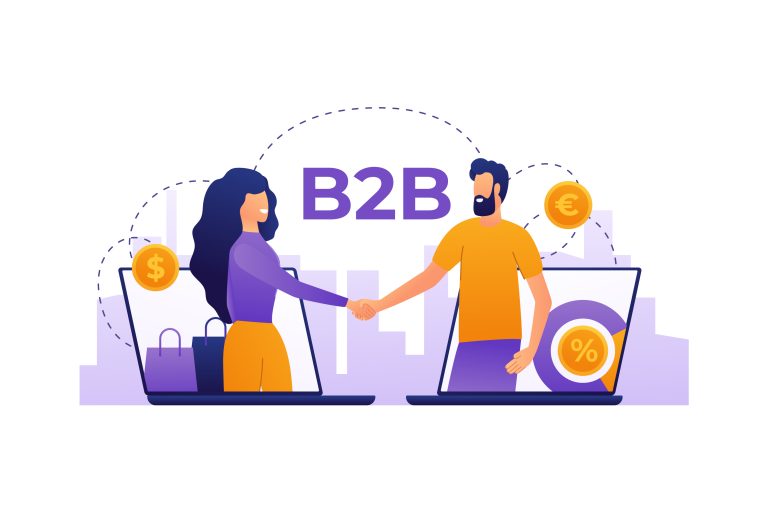Image Source: FreeImages
In the rapidly evolving landscape of business-to-business (B2B) trade, artificial intelligence (AI) technology is shaping a new era of innovation and transformation. AI is revolutionizing the way companies engage with each other, optimizing processes, improving decision-making, and driving efficiency. As we approach 2023 and beyond, it is crucial to explore the AI trends that are reshaping B2B trade and transforming businesses. Let’s explore The AI-Powered B2B Revolution: 8 Trends to Watch in 2023 and Beyond.
1. Hyper-Personalization: Redefining B2B Customer Experience
Personalization has been a focal point in B2B interactions, but AI-powered tools are taking it to a whole new level. Hyper-personalization leverages vast datasets to create tailored experiences that go beyond product recommendations. It encompasses customized content, pricing, and contractual terms based on individual preferences and historical actions within the B2B ecosystem. This level of personalization fosters customer loyalty on an unprecedented scale, creating lasting relationships beyond transactions.
2. Predictive Analytics for Sales and Marketing: Unlocking Insights for Strategic Advantage
The integration of AI in predictive analytics is transforming the B2B sales and marketing landscape. By analyzing historical data, AI-powered programs anticipate future outcomes and trends, empowering businesses with valuable insights. These insights enable a deeper understanding of customer behavior, identification of purchasing patterns, and analysis of market dynamics. With AI-driven predictive analytics, B2B businesses can make data-driven decisions, optimize strategies, and stay ahead of the competition.
3. AI-Enhanced Customer Support: Elevating the Quality of B2B Service
AI is revolutionizing customer support in B2B businesses, with virtual assistants and chatbots taking center stage. These AI-powered applications are becoming increasingly adept at addressing customer queries, providing efficient and effective support. The future holds even more advancements in virtual assistants and chatbots, enhancing their capabilities and usability. This translates to a seamless and intuitive customer service experience, ultimately improving customer satisfaction and loyalty.
4. Supply Chain Optimization: Real-Time Insights for Agile Operations
AI is transforming supply chain management by providing real-time insights and enhancing decision-making capabilities. By continuously monitoring data streams and analyzing information, AI systems offer up-to-the-minute visibility into various supply chain components. This real-time awareness enables proactive decision-making, swift problem-solving, and the ability to capitalize on emerging opportunities. B2B businesses can achieve more agile and responsive supply chain ecosystems that adapt to changing conditions.
5. AI-Generated Content: Efficient Creation of High-Quality Content
Content creation is time-consuming, but AI is changing the game. AI-generated content tools are improving, enabling businesses to generate bulk content quickly and efficiently. These tools create high-quality stories, reports, and product listings, allowing B2B businesses to enhance their content marketing efforts. AI-generated content not only meets high standards of grammar and coherence but also effectively conveys nuanced ideas and messages.
6. Robotic Process Automation (RPA): Streamlining B2B Processes

RPA automates routine tasks in B2B processes, often with the help of AI. Companies are increasingly adopting RPA to speed up billing, data entry, and other manual tasks, resulting in smoother operations and reduced errors. RPA, combined with AI, empowers bots to handle exceptions, deviations, and complex decision-making scenarios within routine tasks. This convergence enhances overall operational efficiency and productivity.
7. Ethical AI and Regulations: Addressing Social Concerns and Compliance
As AI plays a bigger role in B2B processes, ethical considerations and regulations become paramount. Businesses must ensure fair, transparent, and responsible use of AI. Governments and regulatory groups may introduce rules to govern AI in B2B, further complicating compliance. Ethical AI focuses on transparency, accountability, and avoiding biases and discrimination in algorithmic outcomes.
8. AI Talent and Skills Gap: Nurturing a Skilled Workforce
The proficiency and efficacy of AI systems rely on skilled individuals such as data scientists, machine learning engineers, and AI experts. Data scientists extract valuable insights from complex datasets, enabling informed decision-making. Machine learning engineers design and deploy algorithms that enable AI systems to learn and adapt. AI experts possess holistic understanding, envisioning and implementing AI solutions aligned with business objectives. Addressing the AI skills gap is crucial for businesses to effectively leverage AI in B2B environments.
In conclusion, AI is driving a significant revolution in B2B trade, shaping the future of businesses. The trends we discussed, from hyper-personalization to supply chain optimization, AI-generated content to ethical AI, represent the transformative power of AI in B2B processes. By embracing these trends and using AI wisely, businesses can unlock new opportunities, enhance customer experiences, and stay ahead in the competitive landscape of B2B trade.
For more martech and AI-related articles, continue reading iTMunch!

